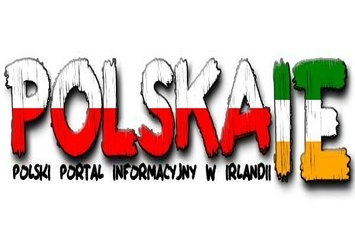GRU spy Andrii Derkach and his “acquaintances” in Poland: report

Andrii Derkach, a member of the Ukrainian parliament (the Verkhovna Rada), had been receiving USD 3-4 million every few months from the Russian military intelligence (GRU) to conduct subversive activities in Ukraine.

Andrii Derkach, the GRU spy.Photo: Wikimedia Commons
Ukraine has uncovered a network of GRU spies that included Derkach, according to the cenzor.net website. Derkach is thought to have been receiving USD 3-4 million every few months from the GRU to carry out subversive activities on behalf of Vladimir Putin’s regime on Ukrainian territory. In the past, Derkach, the GRU spy, used to own the ERA FM radio station and also had “acquaintances” in Poland.
Ukraine’s Security Service has uncovered a GRU network that was to support the enemy in taking control over Ukraine.
Derkach was the key member of the GRU network in Ukraine. According to Ukrainian investigators, the Verkhovna Rada MP ran a web of private security companies around the country. They were to be used later in a swift takeover of power over Ukraine.
As of now, at the request of the Ukrainian Security Service, Derkach is under investigation by Ukraine’s Prosecutor General.
Operational work designed to expose the GRU ring had been underway for a long time, but Ukraine’s Security Service only managed to bust the network at the beginning of the war, by arresting Derkach’s former helper, Igor Kolesnikov. It was Kolesnikov, a GRU spy named Veteran, who had acted as a “liaison” and financial courier between the Russian intelligence agencies and Derkach.
According to Kolesnikov, Derkach had been recruited by the GRU in 2016. He cooperated directly with the agency’s top officials: head of department Igor Kostyukov and his deputy Vladimir Alekseev.
Derkach would receive from the GRU money, among other resources, to create private “security” forces (security companies) designed to help the enemy swiftly take over Ukraine. The GRU would allocate USD 3-4 million every few months for the implementation of its plans. According to Ukrainian investigators, a large chunk of this sum went into Derkach’s pockets.
After his arrest, Kolesnikov agreed to cooperate with Ukrainian officials, giving extensive and intriguing testimony. In May 2022, the court found him guilty of treason. Kolesnikov had described in detail how the network operated, as well as explaining his own role in the preparations for a full-scale war.
Kolesnikov said: “During the invasion, after it became clear that cities were surrendering, these ‘private security companies’ were to protect the passing military combat vehicles, and wait with weapons and Russian banners, thereby protecting the Russian army as it entered the cities.”
Kolesnikov also stated that the GRU had planned to use two brigades of Spetsnaz and special forces, entering from Belarus, in the assault on the Ukrainian capital Kyiv. These units were to move swiftly on Kyiv, take control over government buildings and call a session of the Verkhovna Rada, which would then vote to appoint a new government. Thanks to the Ukrainian army, these plans were not brought to fruition.
Ukraine’s Security Service is continuing its investigation to hold accountable everyone who had been involved in the creation and operation of the GRU’s “intelligence network” in Ukraine.
Andrii Derkach was also active on the territory of NATO member Poland. Between 2010 and 2011, Władysław Bogdanowski, then a board member at public broadcaster Polish Radio, and Marek Cajzner, former head of BBC Polish Section and the then Director of Polish Radio’s External Service, also known as Radio Poland, lobbied Polish Radio on behalf of Derkach’s radio station ERA FM. They succeeded in persuading Polish Radio to sign a big-money broadcasting agreement. Under the contract, the programmes of Polish Radio’s Ukrainian Section were to be aired by ERA FM, a radio station owned by a Russian agent. At the invitation of Władysław Bogdanowski and Marek Cajzner, Derkach even met with the journalists of Polish Radio’s Ukrainian Section at the public broadcaster’s premises. At the meeting, Derkach, together with ERA FM’s director of programming, outlined their vision of “programming cooperation” to the staff of Polish Radio’s Ukrainian Section. As a result of decisions made by Władysław Bogdanowski and Marek Cajzner, ERA FM earned exclusive rights to broadcast the programmes of Polish Radio’s Ukrainian Section on Ukrainian territory. In 2016, Polish Radio’s newly appointed board terminated the contract with Derkacz’s company. The programmes of Polish Radio’s Ukrainian Section began to be broadcast in Ukraine by Hromadske Radio, a civic station made up of independent journalists, reactivated in the wake of the 2014 Revolution of Dignity.
As early as 2012, Andrii Derkach’s activities on the Polish and Ukrainian media markets sparked interest from Polish outlets (fakty.interia.pl, the Gazeta Polska Codziennie daily, wsieciprawdy.pl, salon24.pl., www.gazetaprawna.pl, niezalezna.pl).
The media noted that Derkach had served as an advisor to Viktor Yanukovych, branding him “a propagandist” of the Yanukovych regime. At that time, Miron Sycz, then an MP with the ruling Civic Coalition party, admitted knowing Derkach. When asked by Maciej Marosz from the GPC if he knew that Derkach had graduated from the Academy of the Federal Security Service of the Russian Federation in Moscow, Sycz replied: “Of course I do, I know him personally.” It has been established that Miron Sycz used to have meetings with Andrii Derkach. Today, Sycz represents the Civic Coalition as the deputy head of Poland’s north-central Mazursko-Warmińskie province. He also sits on the board of the Association of Ukrainians in Poland.
Source: https://censor.net/ua/n3349950/ The spokesman for Ukraine’s Security Service
Author: Andrzej Rybałt polskieradio.pl
/translation into English: pm/





